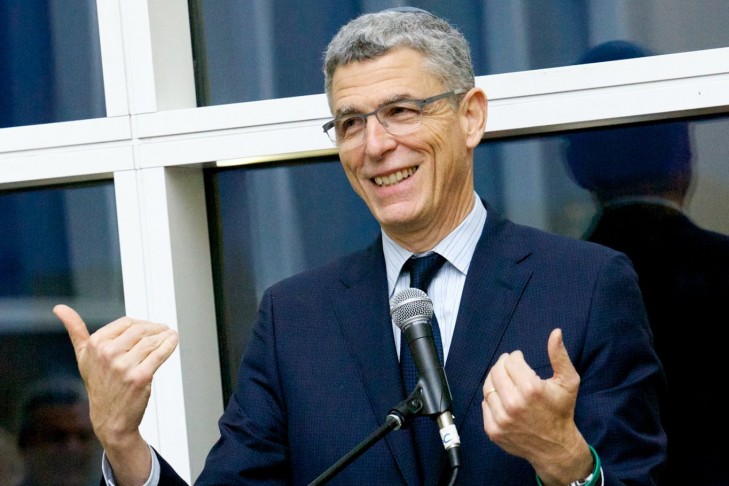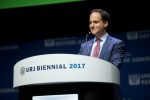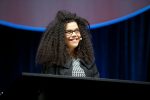Against the backdrop of President Trump’s announcement recognizing Jerusalem as the capital of Israel, almost 6,000 Jews affiliated with the Reform movement attended the group’s 74th Biennial in Boston last week. Rabbi Rick Jacobs, president of the Union for Reform Judaism (URJ), issued a statement asserting, in part:
“The President correctly noted that a sovereign state is entitled to name its own capital. The Reform Movement has also long held that the U.S. Embassy should be moved to Jerusalem. …We [have] expressed our serious concern about the timing of these actions. We still believe that they ought to be implemented in a manner that enhances the peace process and contributes to ensuring the safety and security of Israel.”
In a keynote address to the gathering last Friday morning, Sen. Elizabeth Warren echoed Jacobs’ sentiments. “Jerusalem is the capital of Israel, and diplomacy between Israelis and Palestinians should determine the final status of Jerusalem for all parties,” she said. Warren affirmed her support for a two-state solution and voiced her apprehension over allowing the United States or any nation to interfere with the peace process.
This year, Biennial delegates were invited to come together under the rubric of “reimagining Jewish life.” Over the course of the convention’s four days, learning sessions and talks were aligned with the themes of innovation, action, faith and community. On innovation day I was drawn to a workshop that explored “understanding race, whiteness and racial justice through a Jewish lens.” April Baskin, URJ’s vice president of audacious hospitality, led the spirited session in which participants explored the intersections of race and Jewish identity. The session’s participants also heard about URJ’s current work combatting racial injustice.
On the same day, I also went to a session called “How to Embrace and Honor the Diversity of Political Voices in the Reform Movement.” Rabbi Jonah Pesner, director of the Religious Action Center of Reform Judaism, was among the panelists who heard from Reform Jewish Trump supporters about the alienation they have often experienced within the movement.
On Thursday night Israeli author and peace activist David Grossman was honored with the Eisendrath Bearer of Light Award for “his remarkable contributions to Israeli society through his writing and his powerful activism.” That same evening, delegates approved resolutions on racial justice, condemning sexual violence and harassment, the global refugee crisis and climate change.
Friday’s day of action included sessions on community building in synagogues as well as preparing college students for conversations about Israel on campus. I went to a forum called “Acting Against Hate,” which featured Jonathan Greenblatt, CEO and national director of the Anti-Defamation League, and Rabbi Tom Gutherz of Congregation Beth Israel in Charlottesville, Va.
In conversation with Greenblatt, Gutherz gave a full accounting of that fateful August day when his congregation was surrounded by white supremacists. Gutherz noted that Shabbat morning services during the Charlottesville rally went on as planned. However, being confronted by armed racists, congregants felt safer leaving the synagogue out the back door. In response, Greenblatt observed that there had been an uptick in white supremacist activity, as well as hate crimes, over the past 18 months. He told the audience that since the election, Jews had been the most targeted religious minority of those hate crimes and that Muslims have similarly been pursued.
On Shabbat morning, Jacobs gave a talk on the week’s Torah portion, which told of Joseph’s brothers selling him into slavery. “The Torah portion begins with the drama centered in the land of Israel and ends in the diaspora,” he said. “I won’t mince words—the question for us is simple—are we at a breaking point in diaspora-Israel relations? Is our relationship with our Israeli siblings like that of Joseph and his brothers?”
Jacobs went on to discuss the alienation non-Orthodox and progressive Jews feel in Israel. He reiterated the movement’s commitment to Jerusalem as Israel’s capital while also recognizing that Israel’s security and safety requires peace in the region. Jacobs further said that “our movement stands in solidarity with [President Trump’s] recognition that Jerusalem is the capital of Israel.” Jacobs, however, emphasized that the two-state solution is a critical factor in the peace process.
He then focused on the various challenges that non-Orthodox Jews face in Israel. One of his examples included the fact that the Israeli government reneged on an agreement to create “a meaningful pluralistic prayer space” at the Western Wall. Jacobs voiced concern that the Israeli government recently fast-tracked a bill that legalized only ultra-Orthodox conversions to Judaism. He noted that the chief rabbi of Jerusalem said Reform Jews are worse than Holocaust deniers. “Let us allow our Torah to be a prism to view our current predicament,” Jacobs said to his membership, “and perhaps to help us envision a more healthy, whole and hopeful future.”





